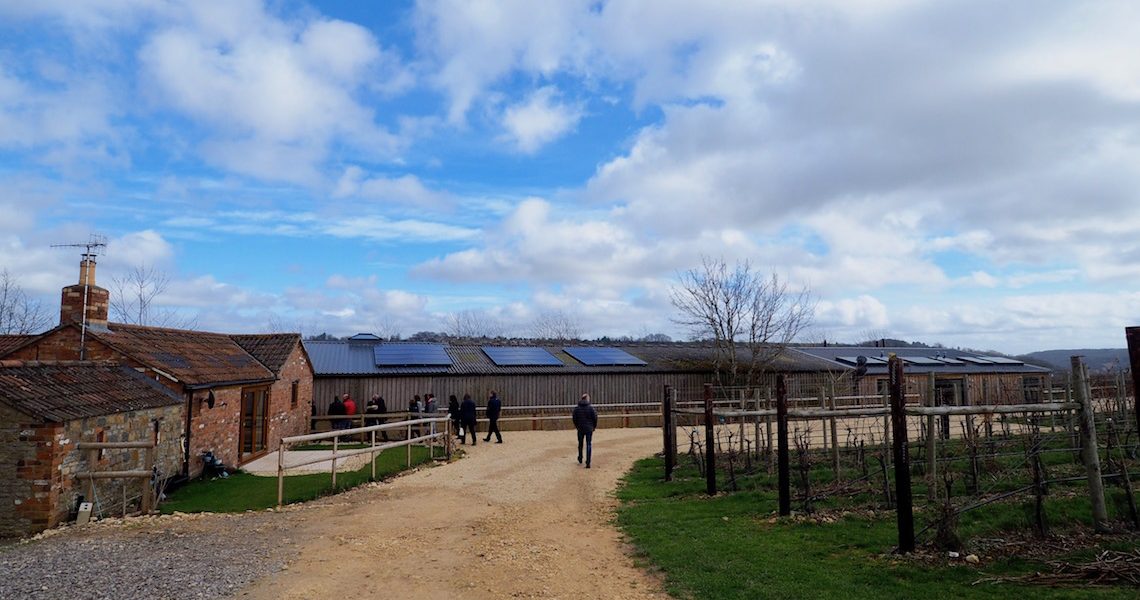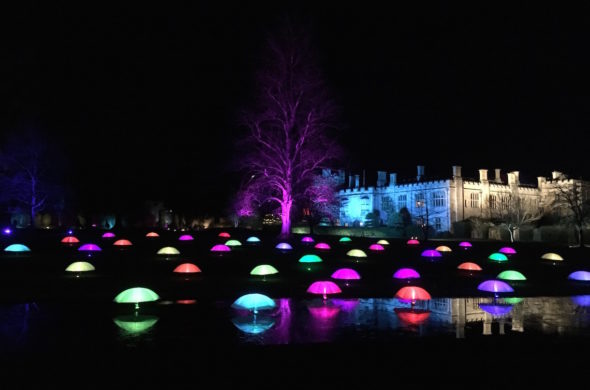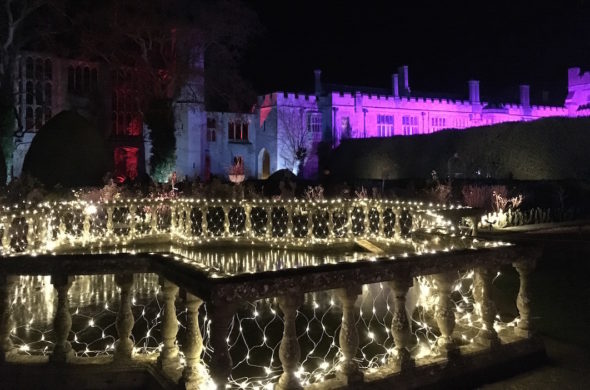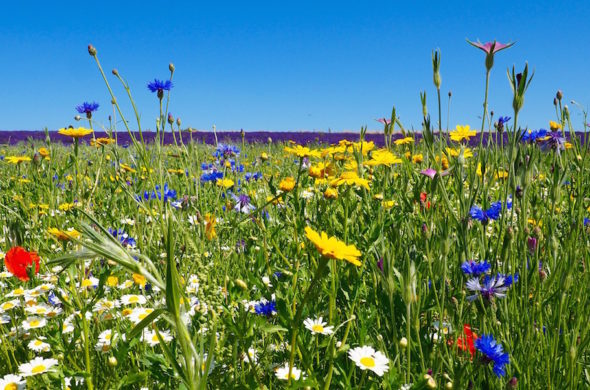After our first wine-tasting visit to Woodchester Valley Vineyard was snowed off earlier this year, Mr Skylark and I were pleased the weather was on our side for a rescheduled visit in spring.
We headed up a single-track road, off the A46 between Stroud and Nailsworth, passing an old stone Covent building and winding our way up towards the top of the hill. I was astounded by the view as I got out of the car. The vineyard looks across a beautiful, wooded valley towards the miniature, hilltop village of Amberley. Suddenly I felt transported far from home.
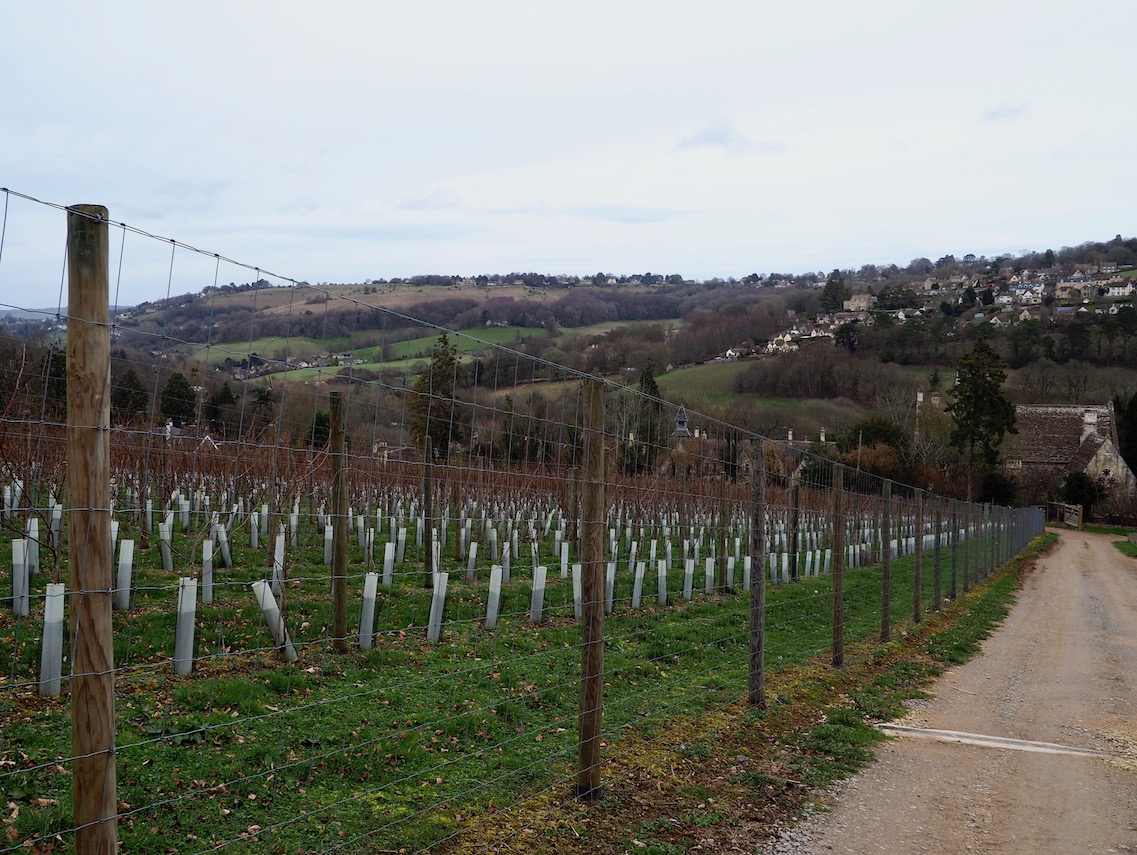
Introduction to Woodchester Valley Vineyard
Adam Avery, the Sales Manager, greeted us in the redbrick tasting room with a glass of white wine – what else would you rather be drinking at 11am on a Saturday morning? We sat at a wooden table, enjoying our 2017 Bacchus, while waiting for the other budding wine tasters to arrive.
Adam gave an introduction to our glass of Bacchus. Mr Skylark had already picked out the elderflower flavour, while I was savouring the tropical notes. Adam explained this particular white, with its long lingering finish, goes well with fish and vegetable dishes or can be drunk very well on its own. “It won the silver medal from Decanter in 2018,” he said. While adding proudly, “That’s the equivalent of The Oscars for winemaking.”
I was astonished to learn the 5.6m bottles produced by the UK wine industry in 2017 had jumped massively to 15.6m bottles in 2018. While I was busy melting through the long hot summer, the vines were truly in their element. Already being a fan of Cornwall’s Camel Valley Brut, I wasn’t surprised to discover the majority of wine produced in the UK is sparkling (68%), but I hadn’t realised that only a tenth is red.
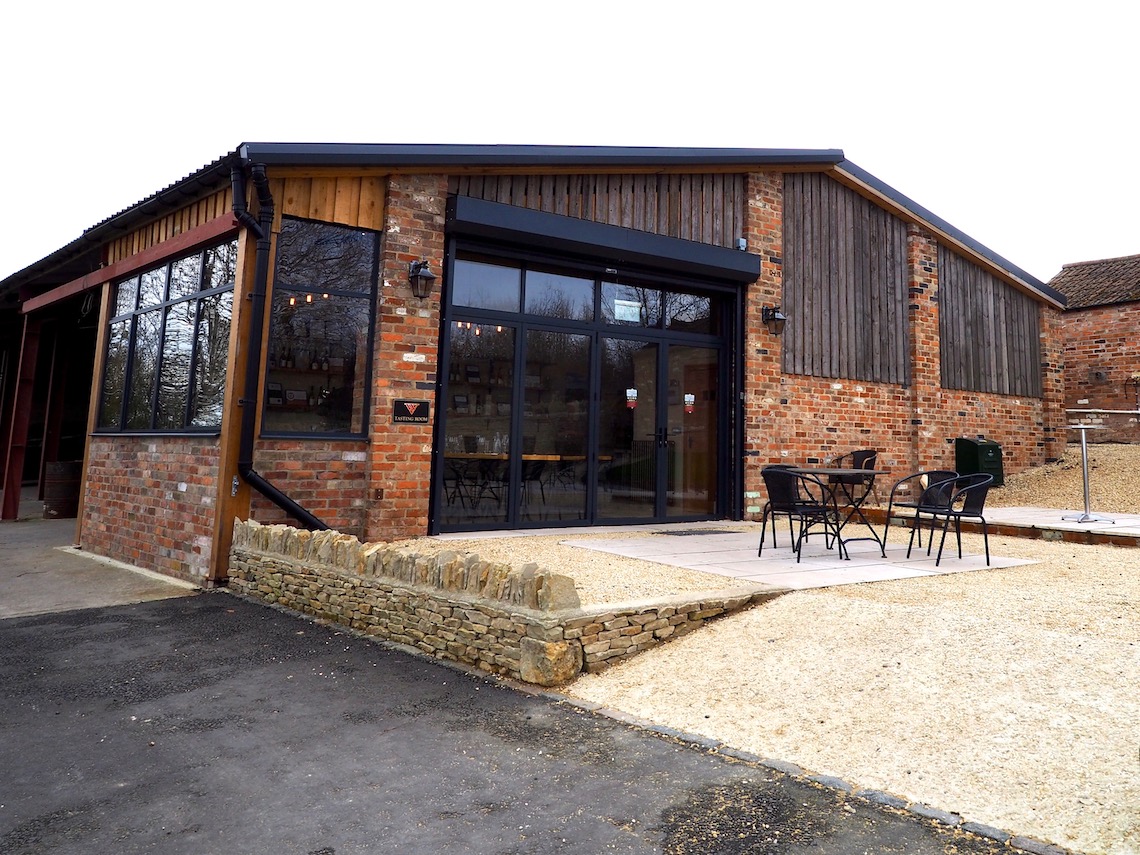
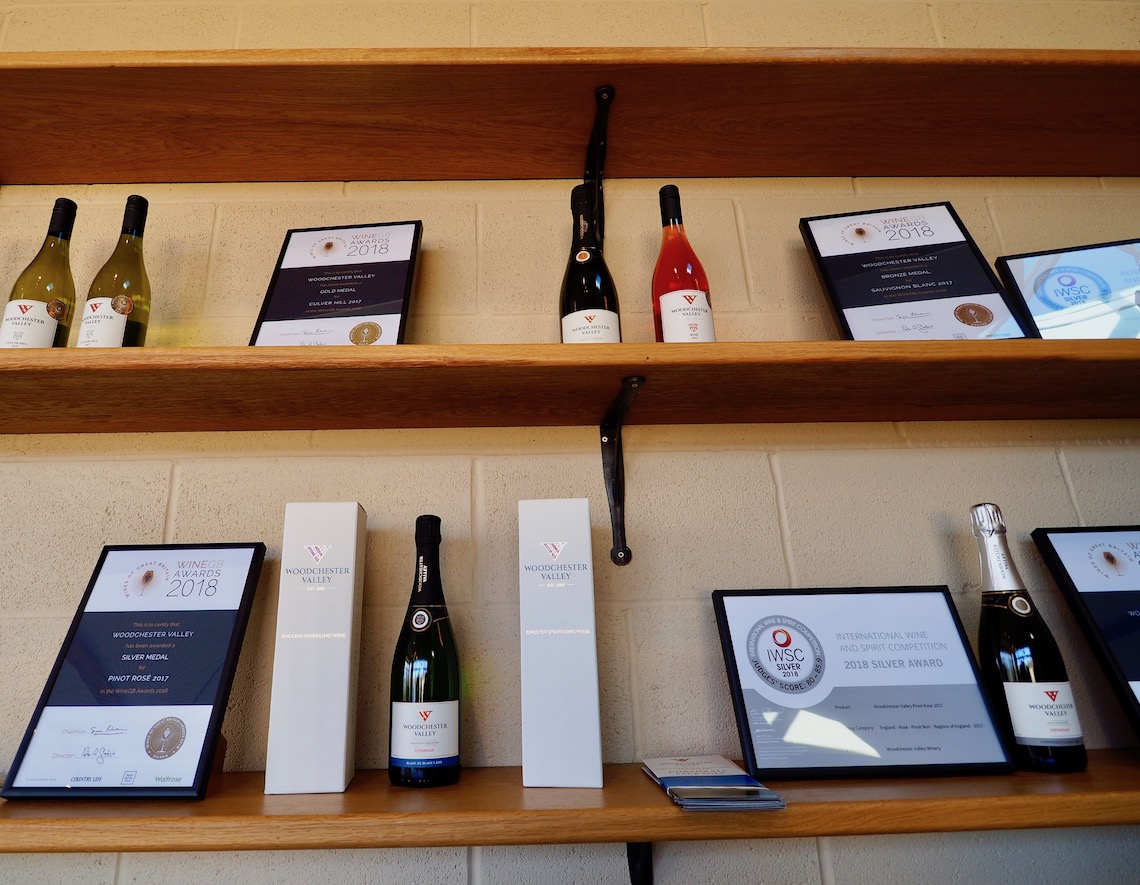
The Past, Present and Future
Adam revealed Gloucestershire has a rich winemaking heritage. There is evidence of vines being grown in the county in Roman times, and two vineyards at Stonehouse were recorded in the Domesday Book in 1086.
Fiona Shiner, the founder of Woodchester Valley Vineyard, tested out her first acre of vines in 2007, across the valley close to the village of Amberley. Finding success, the family expanded their Amberley site, before going on to plant further vineyards on Doverow Hill (Stonehouse) and, where we were standing now, in the Woodchester Valley. They currently own around 18 hectares of vines.
Due to their location in the Cotswold Hills, all three sites have predominantly limestone soil, with the shallow soils of Woodchester and Amberley favouring Pinot Noir and Chardonnay vines, whilst the clay-rich soil of Doverow better suits the Bacchus variety. Right now, it’s great to hear the future seems rosy for English vineyards.
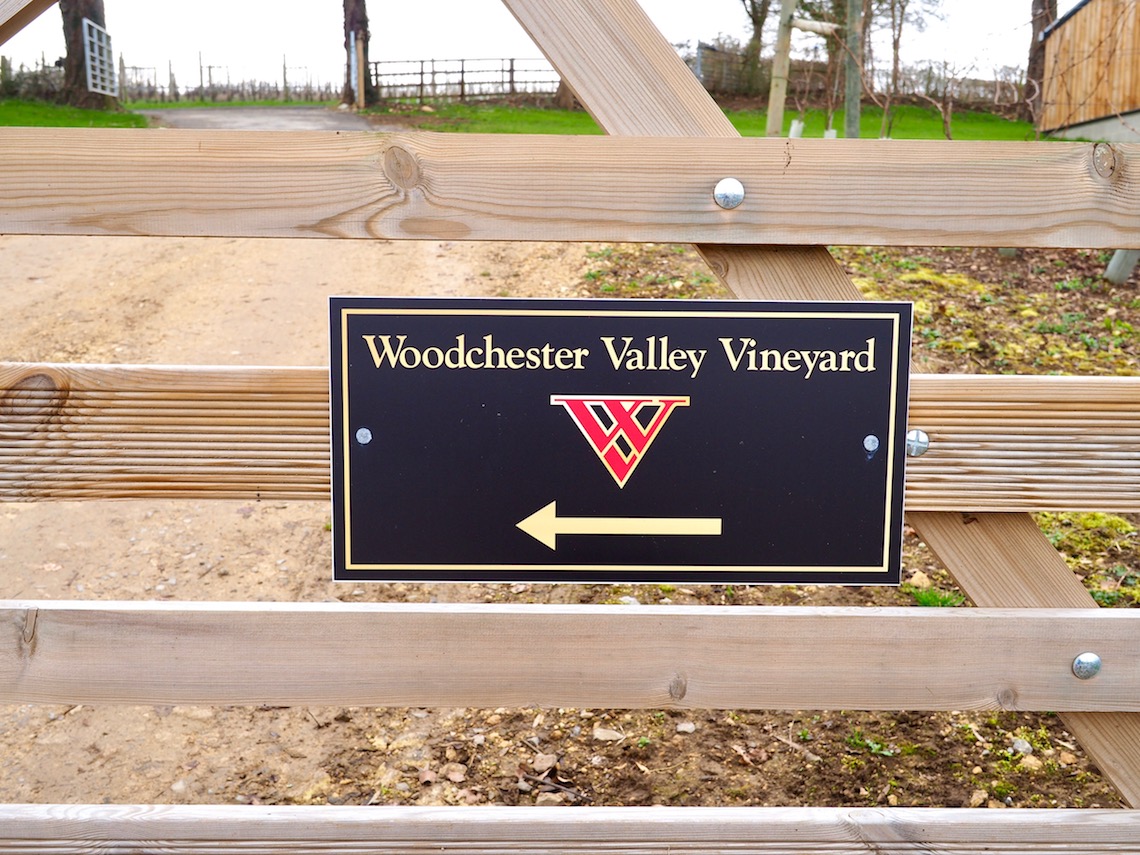
Tour of the Vineyard
Adam showed us the vines and pointed out the irrigation system. He explained that during last year’s hot summer, they were within just a few days of needing to use this watering system. If they hadn’t installed it right from the outset, it would be a really complex and time-consuming job to add retrospectively.
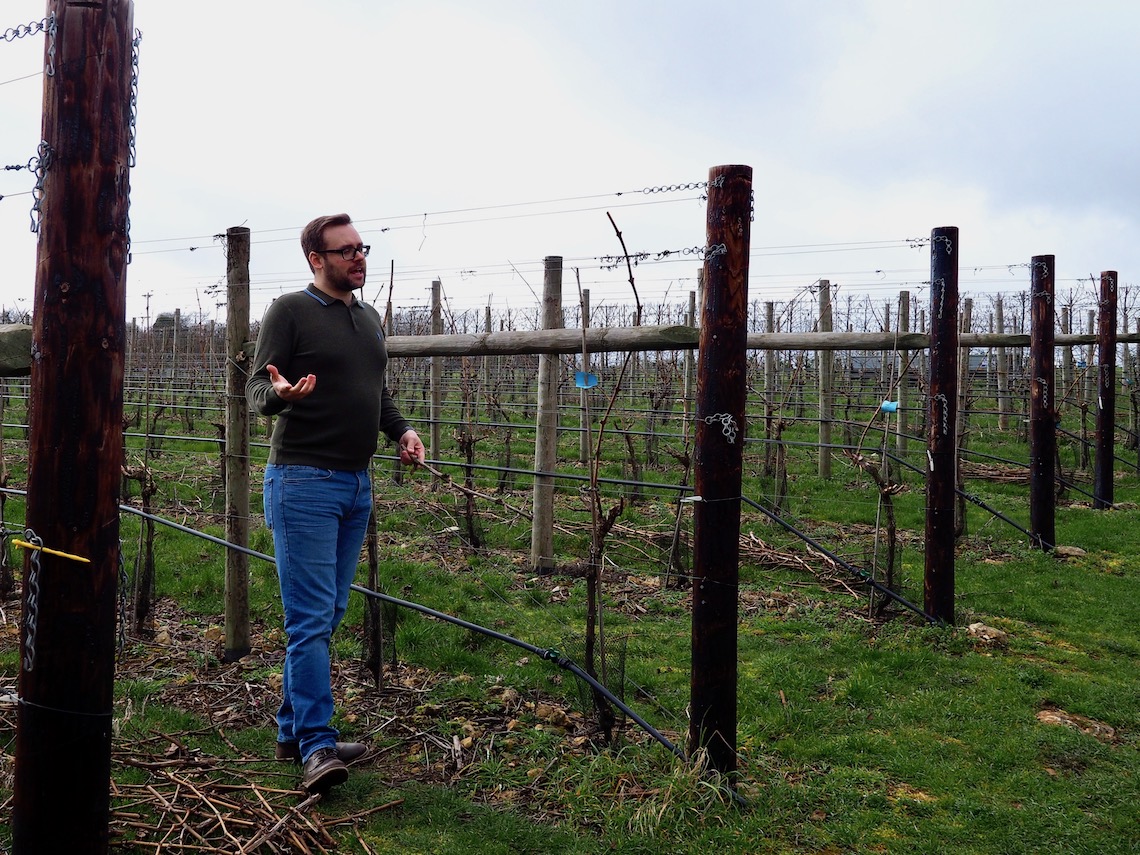
We moved on to look at the shiny, silver equipment undercover outside. It would be fantastic to return during harvest season and see it whirring away. Moving inside a huge shed, rows of storage tanks were lined up, all carefully temperature controlled to affect the final output. The finished product itself, lay in French oak barrels waiting for the perfect time to be bottled.
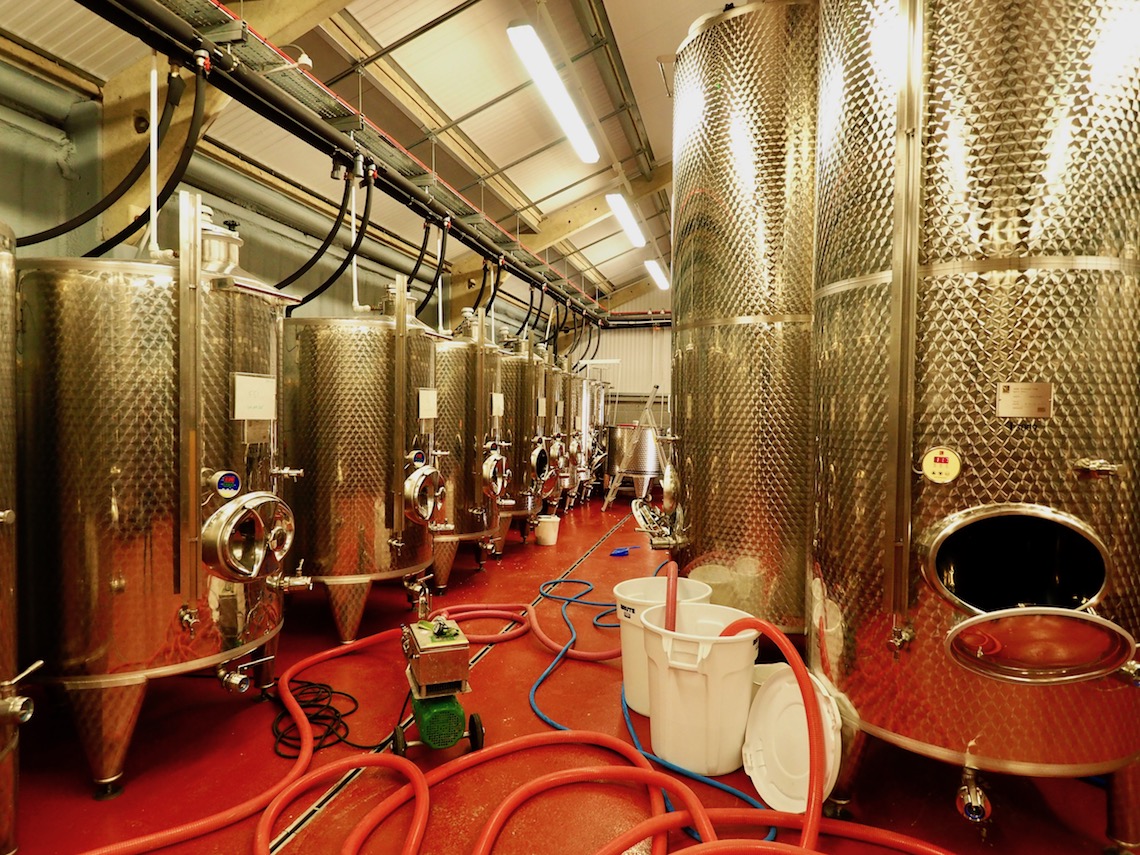
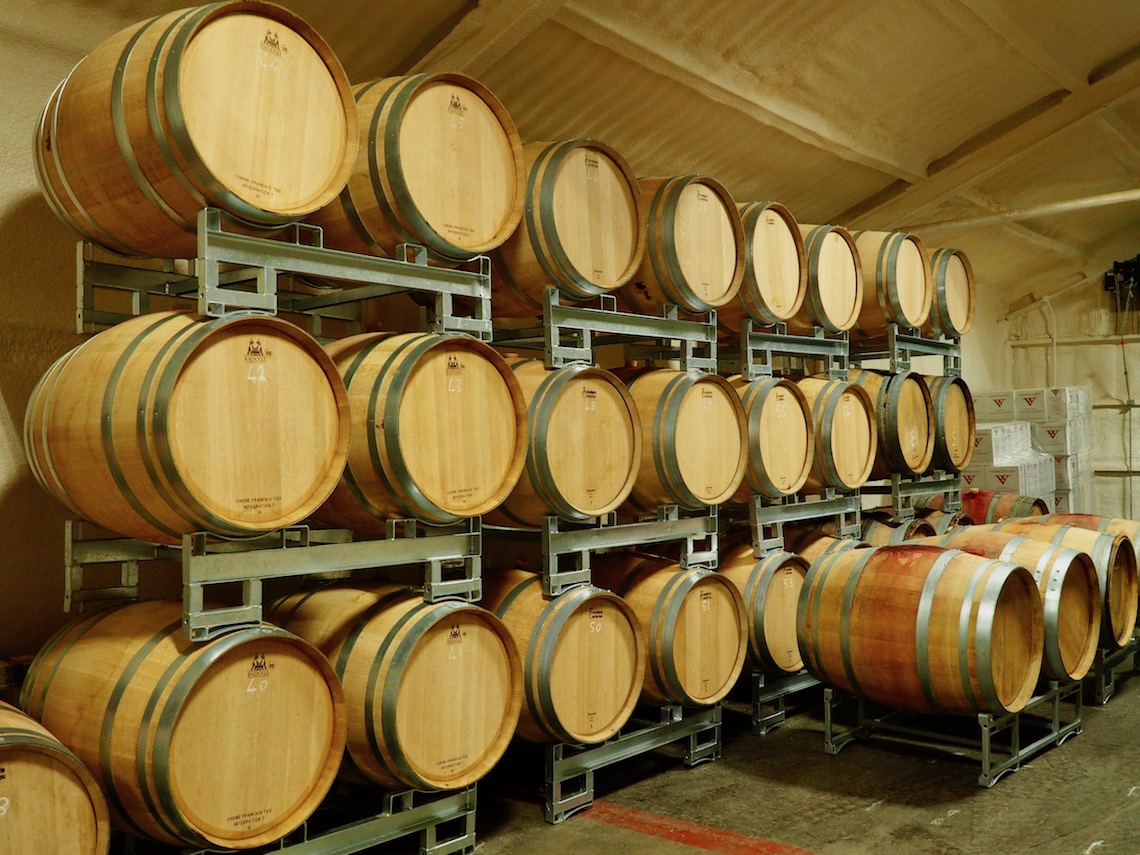
The ‘sparkling wine’ machine fascinated me. Adam talked us through the processes of ‘riddling,’ ‘disgorging’ and ‘corking’ – necessary processes in the champagne method. But I won’t spoil the magic by explaining it here, I’ll let you go and hear it for yourself. Suffice to say that it was Christopher Meret, born in Winchcombe, Gloucestershire, who first documented the method champenoise in 1662 – five years before Dom Perignon supposedly invented sparkling wine in Champagne.

Wine Tasting
My motto has always been ‘save the best bit ’til last’ and now it was time to taste the wine.
We started with the Bacchus 2017, which we had tried earlier. I enjoyed tasting it again and found it dry, refreshing and zingy. Moving on to the Orpheus Bacchus 2016, we discovered this had more minerality and a longer finish than the Bacchus. I could smell gooseberry and Adam advised this wine would perfectly complement a bowl of moules frites, lobster, prawns, monkfish or poultry.
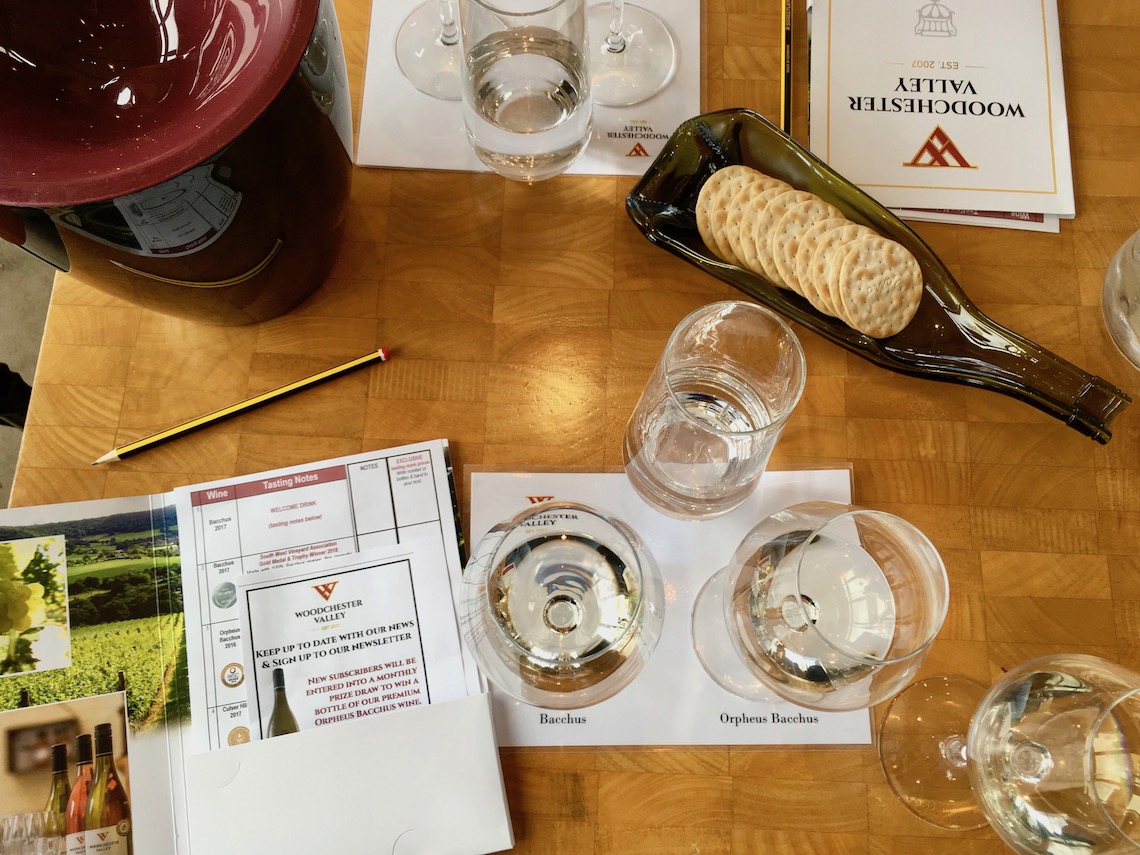
The Culver Hill 2017 was more peachy and punchy. It would make a lovely aperitif or be just thing to wash down a plate of fish & chips, vegetable tarts or chicken dishes. Next came the Rosé 2017. I’m not usually fond of rosé, however I enjoyed this one. It had flavours of ripe strawberries and raspberries and I thought it would be delicious with a cream tea! Adam, on the other hand, suggested it would pair well with roasted vegetables, lightly spiced dishes or barbeque food.
We finished with a glass of sparkling. The Cotswold Classic 2016 was lightly floral with apple and citrusy notes. Lovely to drink on it’s own or a great way to add some pizazz to your Friday night fish & chips.
It’s possible to buy Woodchester Valley’s wine direct from the vineyard, or from stockists in Gloucestershire
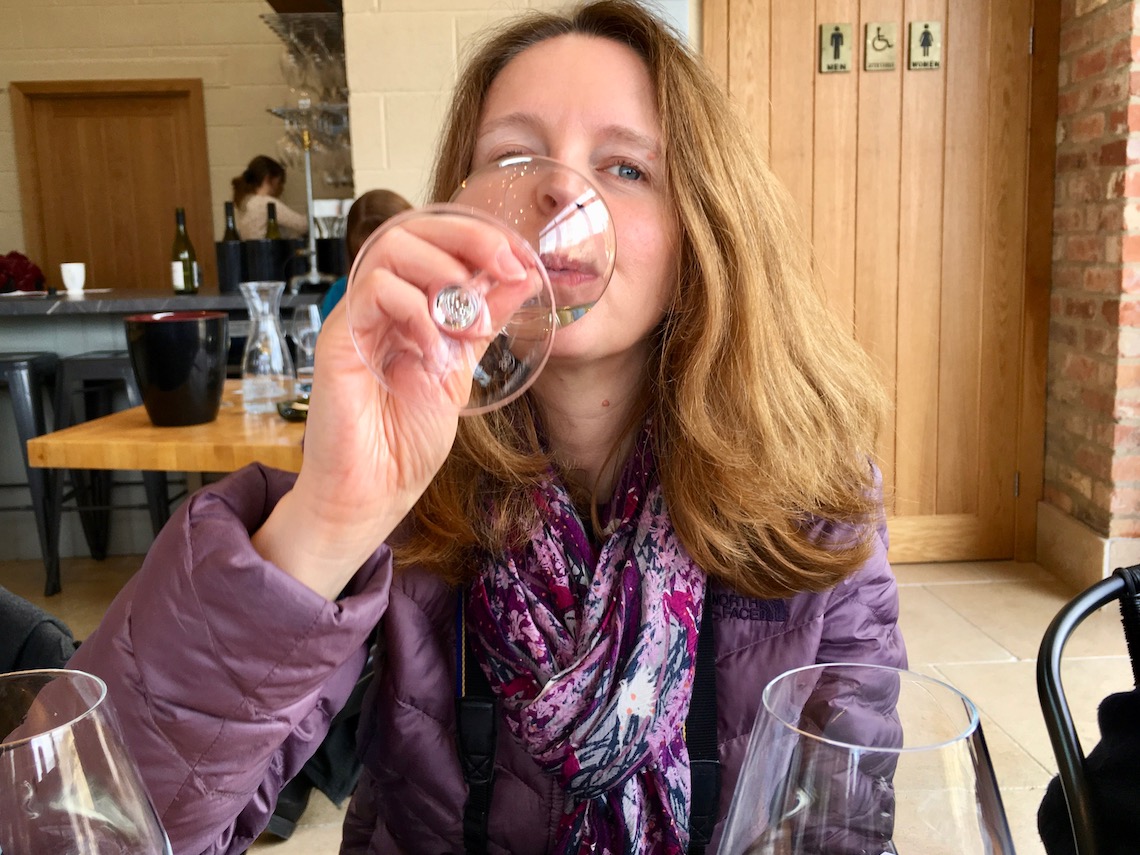
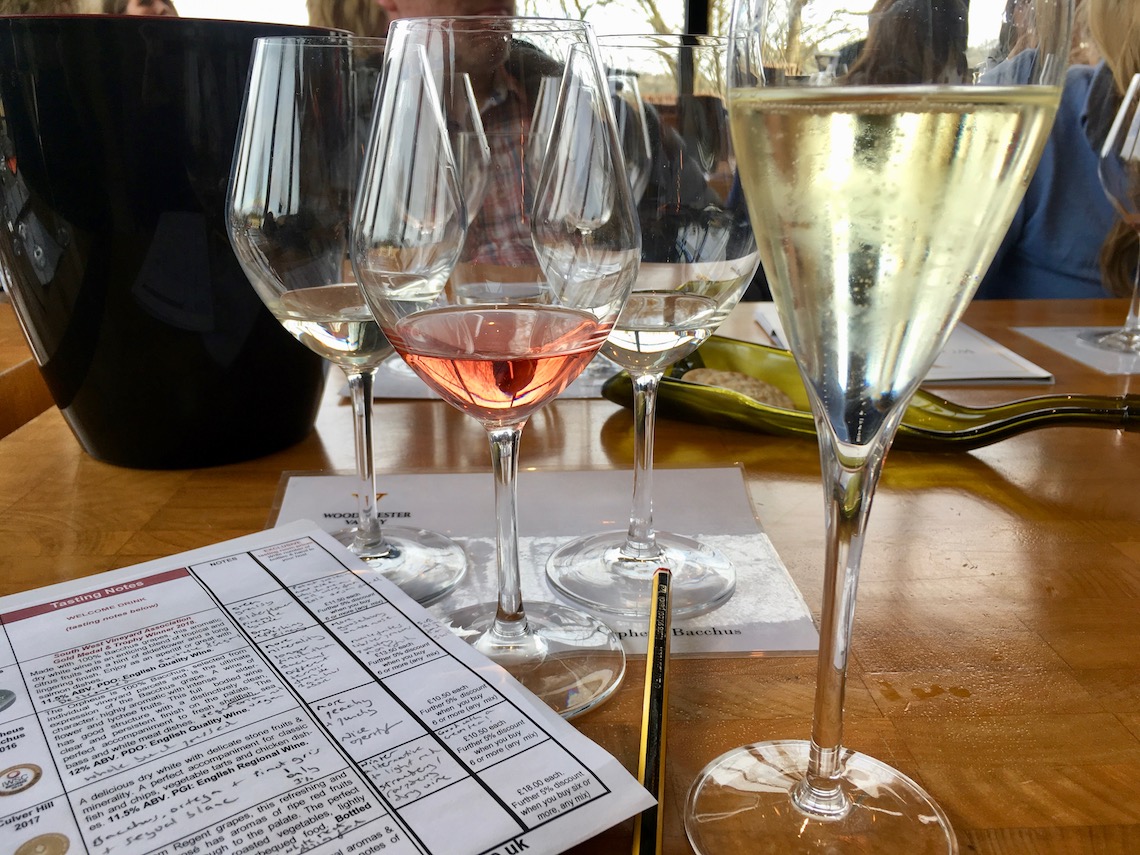
Sustainability
Woodchester Valley Vineyard is working hard to be as sustainable as possible. As small-scale producers, it is not possible for them to be certified organic at this stage, due to the potentially devastating threat of mildew, but I was pleased to hear they use seaweed fertilisers and sprays. All wines produced from 2017 onwards will be suitable for vegans, due to their use of potato protein. The vineyard uses solar panels to generate electricity on the roofs of their offices and accommodation.
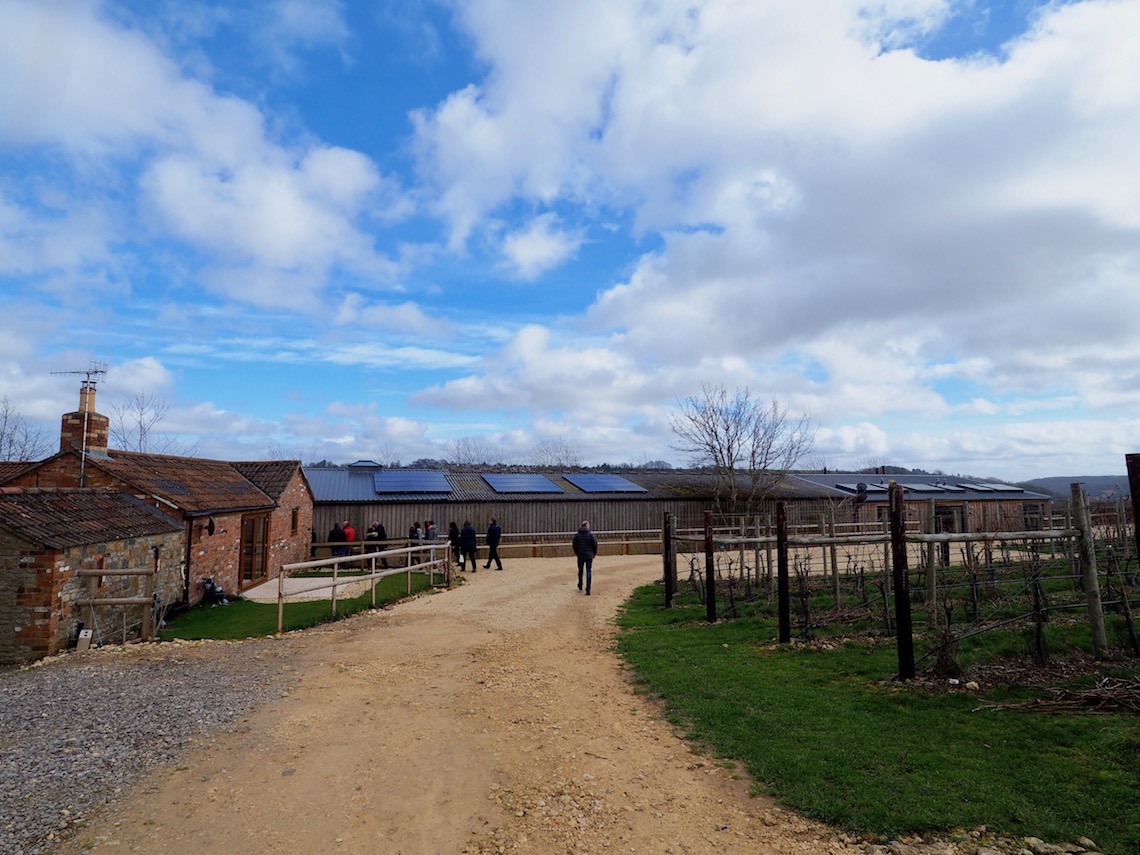
Events and Stays
You can stay overnight at Woodchester Valley Vineyard in self-catering accommodation – I’ll have to have a word with Mr Skylark about this. What better view to wake up to than row upon row of vines? They also run special events such as fish & chip supper evenings, which would make a great get together with friends. Keep an eye out on their Events page for details.
Thank you to Woodchester Valley Vineyard for kindly hosting my visit. All views and opinions are my own. We really enjoyed our visit and came away with much more of an insight than we had anticipated.
Have you had any experiences of wine tasting in the UK or further afield? I’d love to hear your recommendations in the comments below.

